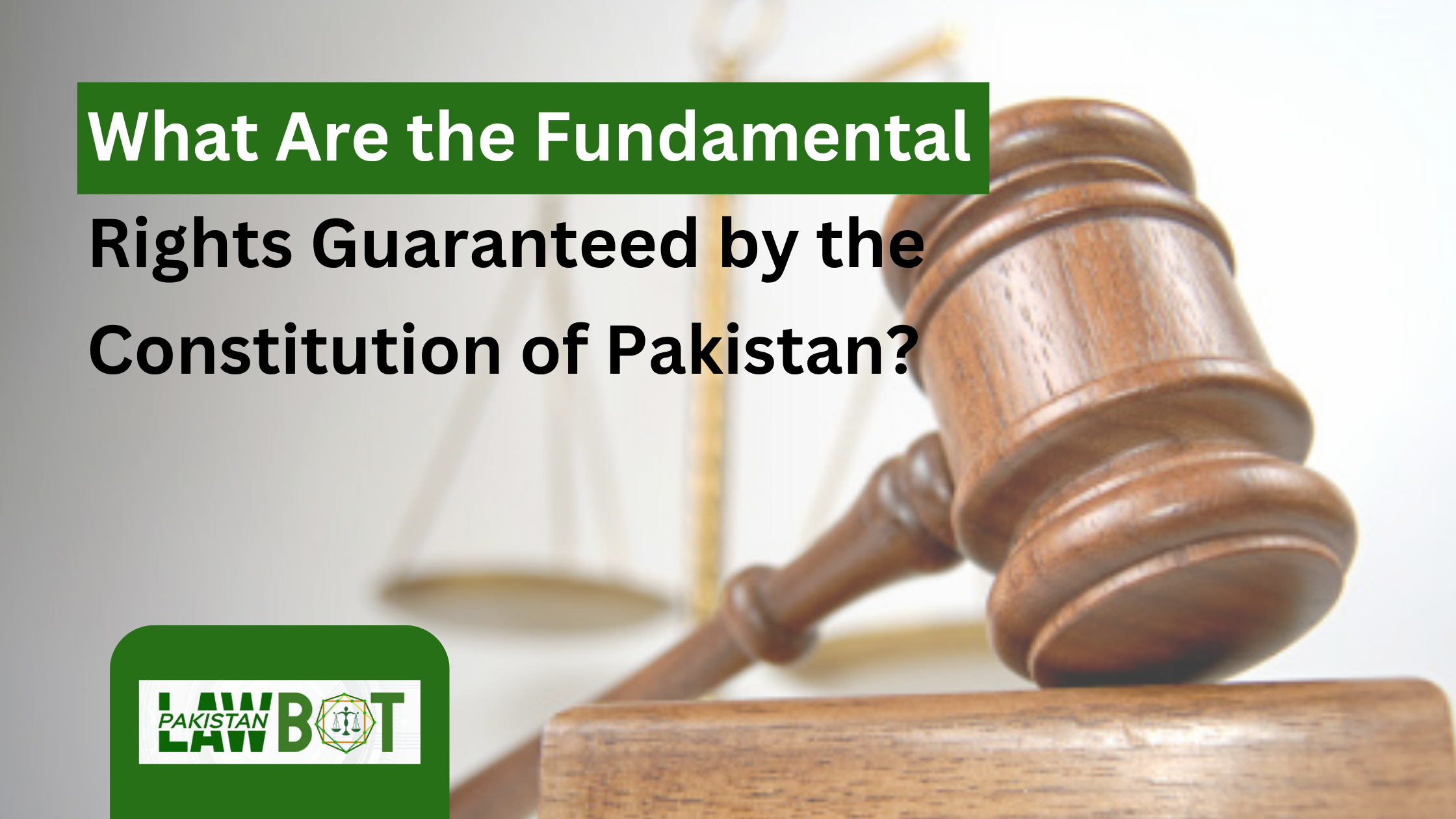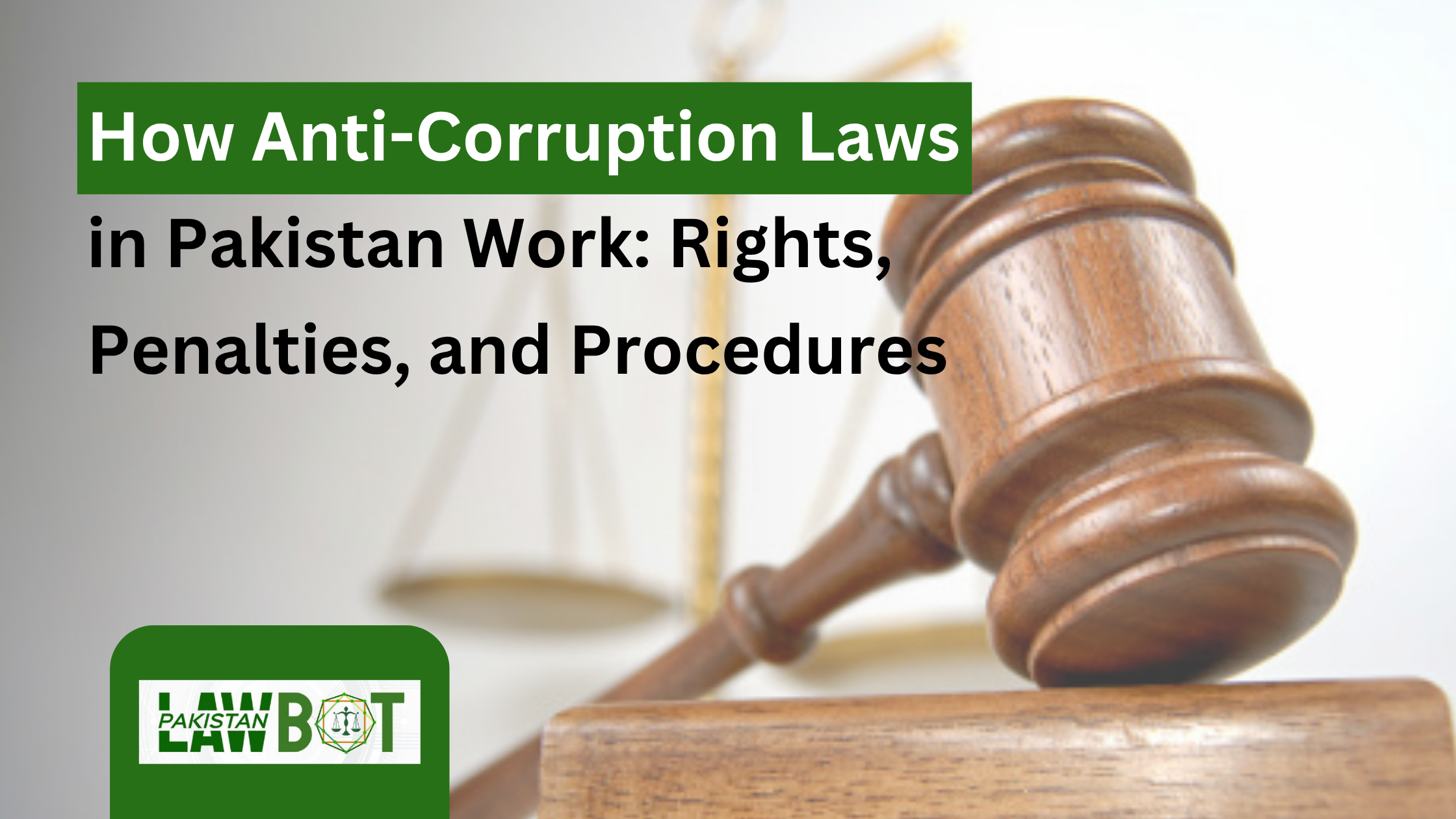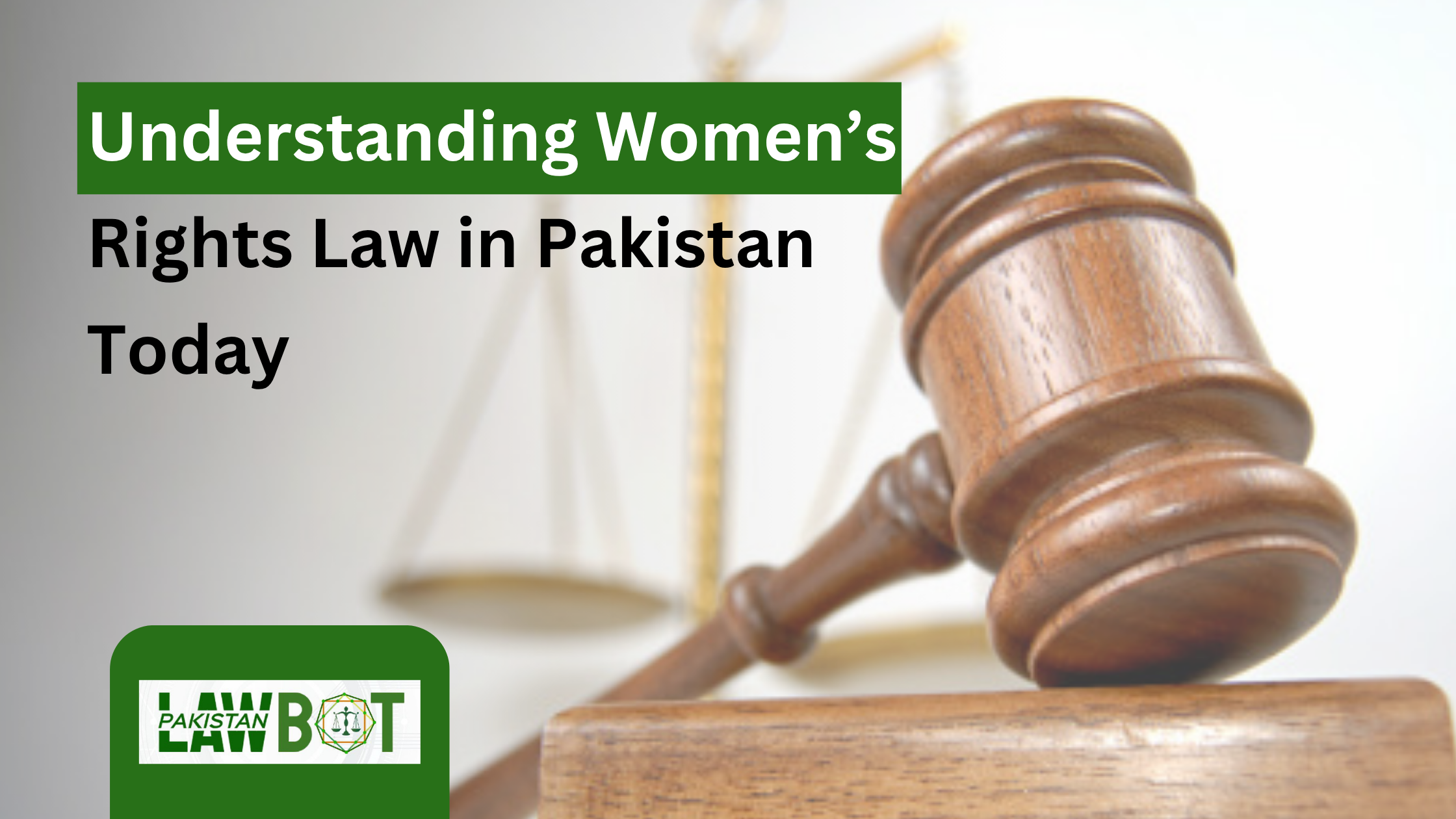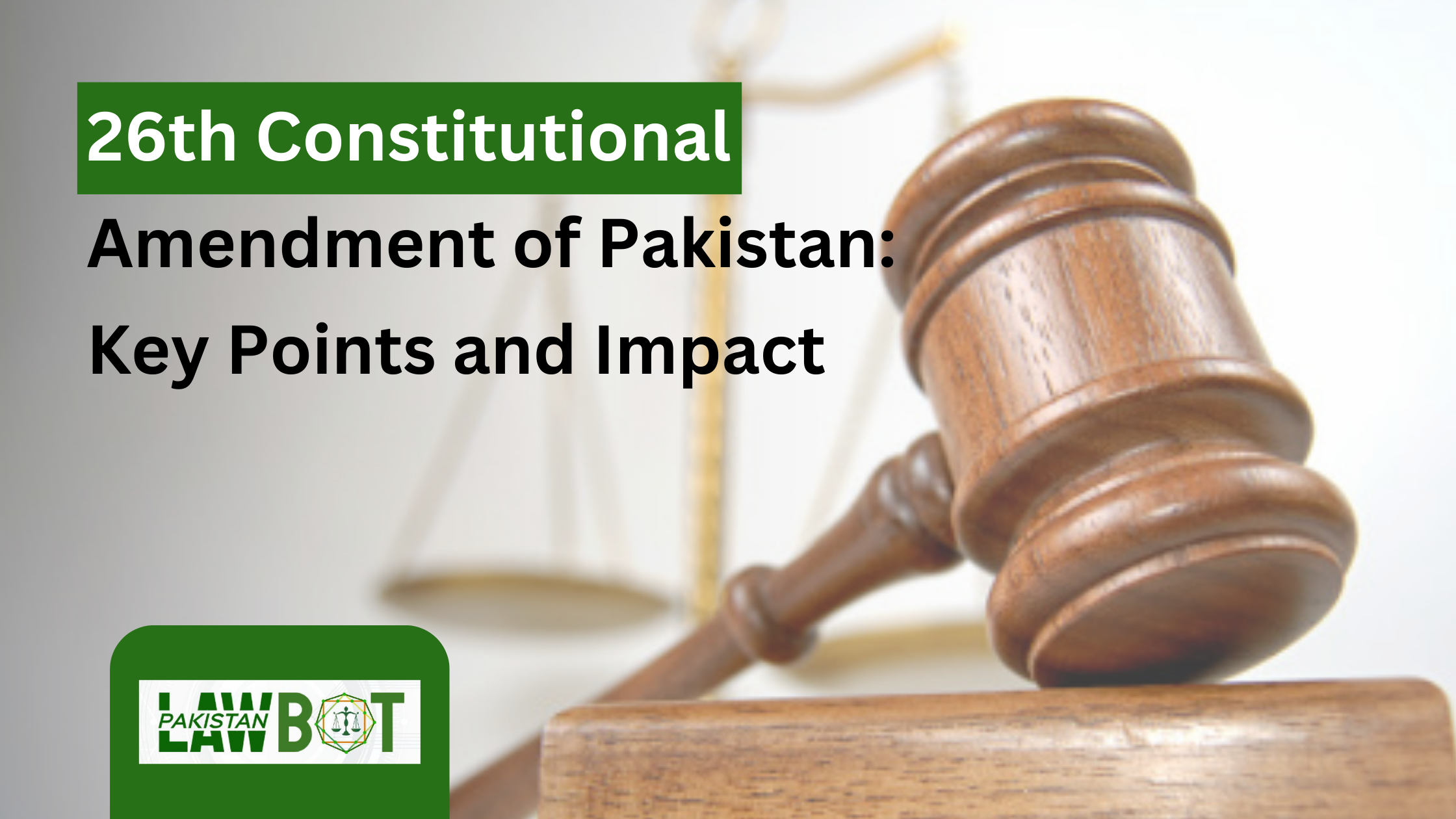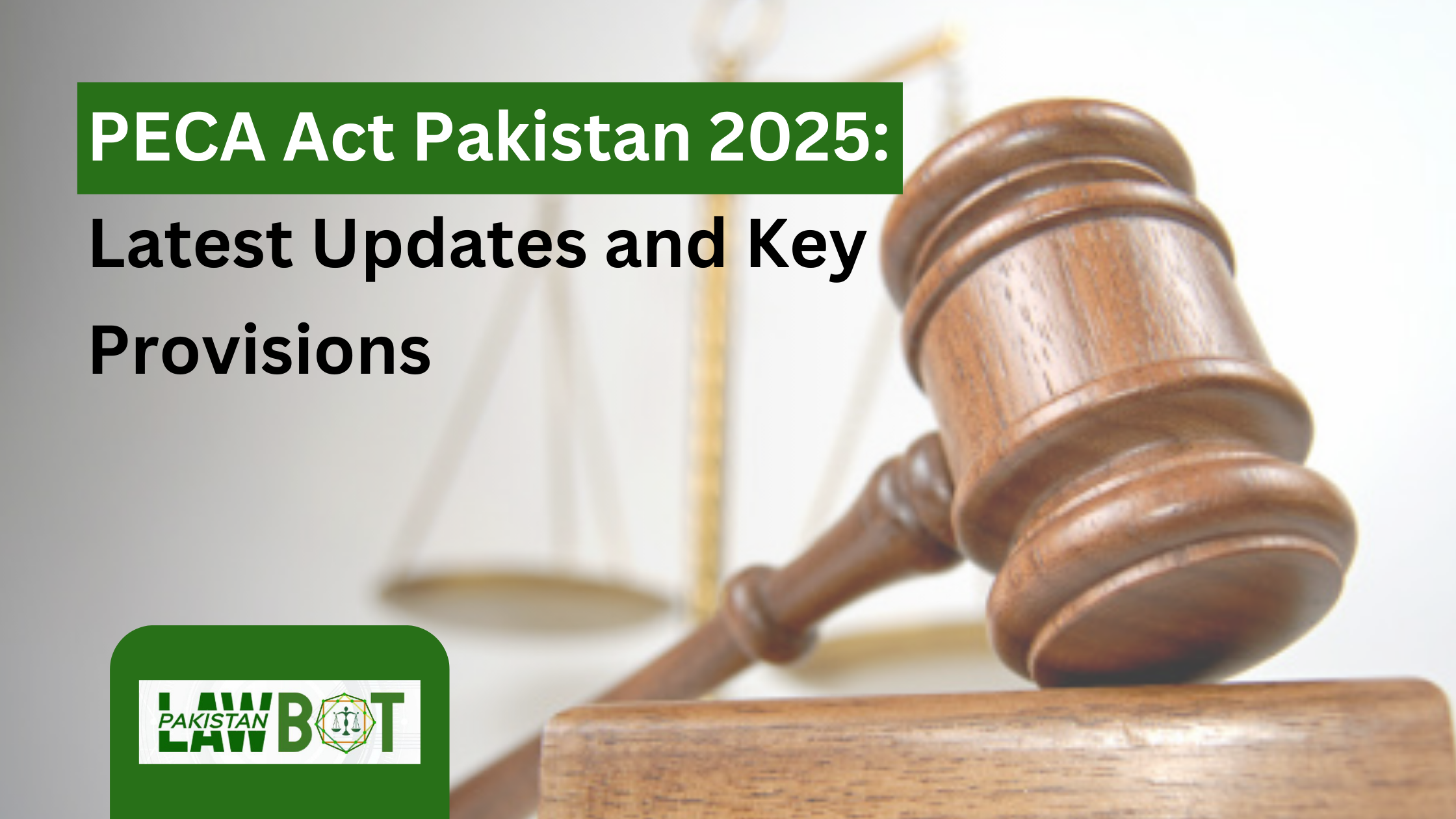The Constitution of Pakistan is the supreme law of the country. It lays down the structure of the state and safeguards the rights of its people. Among its most valuable provisions are the Fundamental Rights that belong to every citizen. These rights ensure justice, equality, and freedom, forming the backbone of a democratic society.
In this article, we will examine the fundamental rights protected under the Constitution of Pakistan, discuss their significance, and illustrate how they impact the lives of ordinary people.
Understanding Fundamental Rights
Fundamental rights are basic freedoms and protections that every individual enjoys under the Constitution. They act as a shield against misuse of power and provide citizens with legal grounds to demand justice.
In Pakistan, the Constitution lists these rights in Chapter 1 of Part II (Articles 8 to 28). They cover civil, political, economic, and cultural freedoms. The state and its institutions must respect and protect them.
Key Features of Fundamental Rights in Pakistan
Before looking at each right, it helps to understand some key features:
-
Universal application – These rights apply to all citizens regardless of gender, religion, or background.
-
Certain limitations – The state may place reasonable restrictions to maintain security, morality, and public order.
-
Enforceability – Citizens can approach the High Courts or the Supreme Court if authorities violate their rights.
-
Balance with state needs – The Constitution protects individual freedoms while also ensuring harmony and national stability.
Right to Equality (Articles 25–27)
Equality forms the foundation of justice. The Constitution guarantees that every citizen stands equal before the law and receives equal protection.
-
Article 25 states that all citizens are equal before the law and prohibits discrimination based on sex. At the same time, it allows special provisions for the protection of women and children.
-
Article 26 grants equal access to public places.
-
Article 27 provides equality of opportunity in public service appointments without discrimination.
Therefore, this right reflects Pakistan’s vision of fairness and merit.
Right to Freedom (Articles 15–19)
Freedom is essential for personal dignity and democracy. The Constitution protects several forms of freedom, including:
-
Freedom of movement (Article 15) – Citizens may move freely throughout Pakistan and live in any part of the country.
-
Freedom of assembly (Article 16) – People can gather peacefully without arms, although the state may restrict assemblies for security reasons.
-
Freedom of association (Article 17) – Citizens may form associations, unions, and political parties.
-
Freedom of trade and profession (Article 18) – Everyone has the right to enter any lawful profession or business.
-
Freedom of speech (Article 19) – People can express their opinions, but the state may limit this right to protect religion, security, and morality.
-
Freedom of information (Article 19A) – Citizens can access public information for transparency and accountability.
As a result, these freedoms empower people to participate in public life and question authorities.
Right to Life and Liberty (Article 9)
Article 9 ensures that no one can deprive a person of life or liberty except under the law.
This right extends beyond survival. Courts in Pakistan have explained that the right to life includes living with dignity, access to clean water, healthcare, and a safe environment. Therefore, the article covers social and environmental justice as well.
Right to Fair Trial (Article 10A)
Justice cannot function without a fair trial. Article 10A ensures that every individual receives a fair hearing before an impartial court or tribunal.
This right strengthens the rule of law, prevents misuse of power, and aligns Pakistan with international human rights standards.
Safeguards Against Arbitrary Arrest (Articles 9–10)
The Constitution shields individuals from unlawful arrest and detention. Important safeguards include:
-
Authorities must inform a person of the reasons for arrest.
-
The arrested individual must appear before a magistrate within 24 hours.
-
Preventive detention is possible, but the law limits it strictly in duration and scope.
Thus, these safeguards protect citizens from abuse of power.
Right to Religion (Articles 20–22)
Pakistan’s creation carried the vision of religious freedom. The Constitution protects this vision through the following:
-
Article 20 – Citizens may practice, profess, and propagate their religion.
-
Article 21 – No person can be forced to pay taxes for the support of another religion.
-
Article 22 – No student can be required to receive religious instruction without consent.
Consequently, these rights build harmony and respect among different faiths.
Right to Property (Articles 23–24)
The Constitution recognizes every citizen’s right to acquire, own, and dispose of property. However, the state may acquire property for public use but only with proper compensation.
Therefore, this right balances private ownership with the needs of society.
Protection Against Slavery and Forced Labor (Article 11)
Article 11 bans slavery, forced labor, and child labor. It ensures that no citizen faces exploitation for economic or personal gain.
By doing so, the Constitution protects human dignity and secures fair labor practices.
Right to Education (Article 25A)
Education holds a special place among fundamental rights. Article 25A requires the state to provide free and compulsory education to all children between 5 and 16 years of age.
Although implementation remains challenging, this right is critical for Pakistan’s progress. Moreover, it connects directly to equality and development.
Protection of Cultural and Language Rights (Article 28)
Pakistan is home to diverse cultures and languages. Article 28 gives any group the right to preserve and promote its language, script, or culture.
This right ensures inclusivity and allows communities to celebrate their identity.
Restrictions on Rights
Although the Constitution guarantees rights, they are not absolute. The state may impose restrictions in matters involving:
-
National security
-
Public order
-
Morality and decency
-
Protection of the rights of others
These restrictions create a balance between individual liberty and collective interest.
Role of the Judiciary
The judiciary plays a crucial role in protecting rights. Citizens can file petitions in the High Courts or the Supreme Court when authorities violate their freedoms. Moreover, judicial activism in Pakistan has expanded the scope of rights, interpreting them in favor of citizens.
Why Fundamental Rights Matter
Fundamental rights affect everyday life. They:
-
Promote justice and equality
-
Safeguard personal freedom
-
Keep the government accountable
-
Encourage social and economic development
Without them, democracy and the rule of law cannot survive. Therefore, citizens must know their rights and use them wisely.
Conclusion
The Constitution of Pakistan provides a strong framework of fundamental rights that protect equality, freedom, and dignity. Although challenges remain in enforcement, these rights continue to guide Pakistan toward justice and democracy.
By understanding and exercising these rights, citizens can defend themselves against injustice and help build a fair society.

